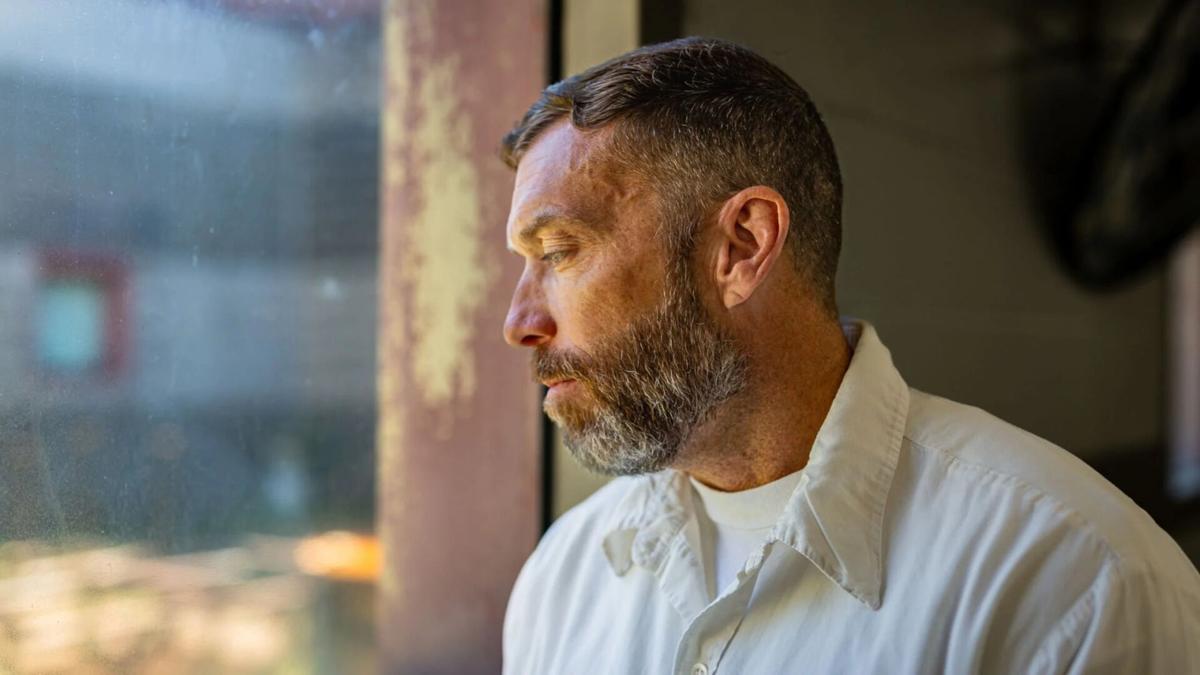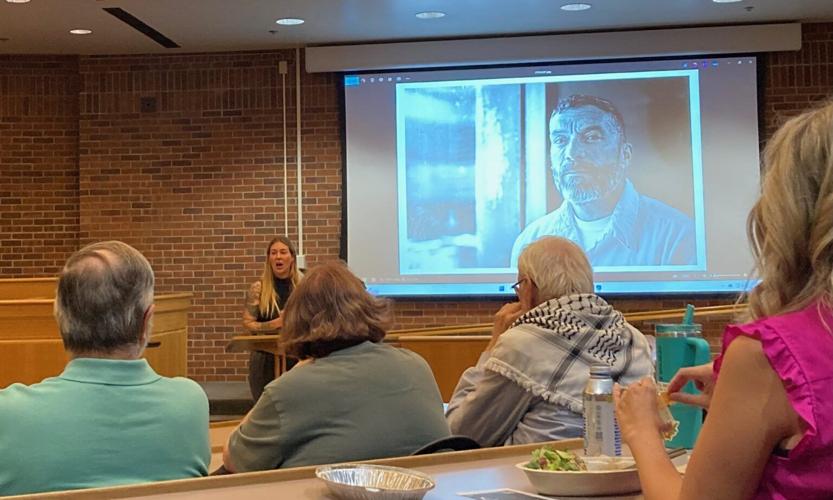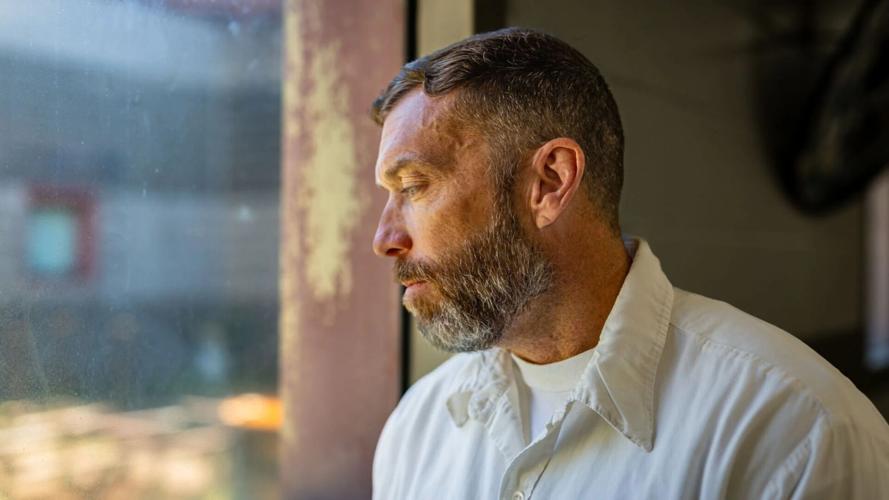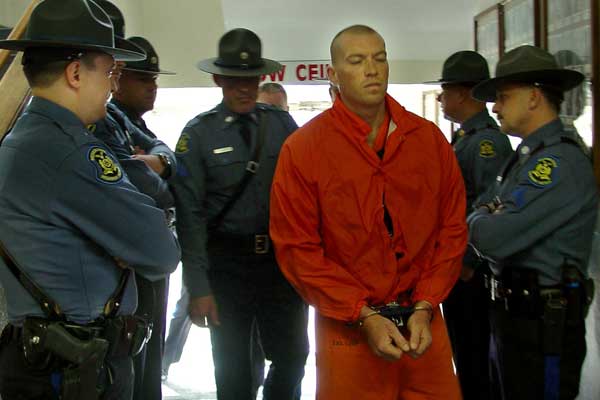A man who has insisted upon his innocence in the 2005 murder of a Missouri highway patrolman is scheduled to be executed next week, even though the jury that convicted him could not reach agreement on his death sentence.┬Ā
In , a deadlocked jury would have resulted in a life sentence. But Missouri is one of two states, along with Indiana, that allow judges to unilaterally choose the death penalty when a jury is split on how to sentence a defendant for a capital offense.┬Ā
Lance Shockley was a of execution in June after exhausting state and federal processes to appeal his conviction of the murder of Missouri State Highway Patrol Sgt. Carl Dewayne Graham Jr.
People are also reading…
Graham was found shot dead in the driveway of his home in Carter County in March 2005. He had been investigating ShockleyŌĆÖs role in a fatal 2004 drunk driving accident, which prosecutors said gave Shockley a motive to kill him.

A Missouri Highway Patrol file photo from March 23, 2005, shows the arrest of Lance Shockley. He was charged in the murder of Sgt. Carl Dewayne Graham, a Missouri state trooper.
ShockleyŌĆÖs defense team argued on appeal that his trial was flawed by a lack of physical evidence or eyewitnesses placing him on GrahamŌĆÖs property on the day of the murder, and that Shockley was entitled to of items from the scene of the crime that could exonerate him.┬Ā
With a clemency petition pending in Gov. Mike KehoeŌĆÖs office, ShockleyŌĆÖs case has stirred scrutiny of the stateŌĆÖs unusual judicial sentencing law.┬Ā
Anti-death penalty activists at the Missouri Capitol Tuesday, with some carrying signs asking, ŌĆ£What if we got it wrong?ŌĆØ┬Ā
At a presentation at the University of Missouri Law School later that evening, ShockleyŌĆÖs lead attorney, assistant federal public defender Jeremy Weis, said Missouri law puts circuit court judges ŌĆö who in , not appointed ŌĆö under ŌĆ£a lot of pressureŌĆØ to choose the death penalty.┬Ā
ŌĆ£Nobody ever wins an election for county judge or circuit judge by arguing that, ŌĆśIŌĆÖm going to be fair with defendants,ŌĆØ Weis said in an interview Thursday.

Alyssa O'Brien, a mitigation specialist at the federal defender office in the Western District of Missouri, speaks on Oct. 7 at the University of Missouri about Lance Shockley, pictured in the background. (Steph Quinn/Missouri Independent.)
, Missouri lawmakers have considered at least one bill to repeal the law.
State Sen. Mary Elizabeth Coleman, a Republican from Arnold, sponsored bills in 2023, 2024 and that would have required a sentence of life imprisonment without parole in cases with deadlocked juries. This year, the bill stalled when it reached the full Senate, but she said she plans to sponsor the measure again in 2026.
ŌĆ£No matter what anybodyŌĆÖs individual belief system is about the death penalty, I think we can all agree that it should be consistently applied,ŌĆØ Coleman said in an interview Thursday. ŌĆ£And when you have one person making a decision on behalf of the state about the life and death of a citizen, I think itŌĆÖs really inappropriate.ŌĆØ
But bills like ColemanŌĆÖs have faced opposition from lawmakers who argue that current state law allows judges to ensure victims see justice for serious crimes.
Senate Majority Leader Tony Luetkemeyer, a Parkville Republican, opposed ColemanŌĆÖs bill when it came up for debate in March.┬Ā
ŌĆ£A vote in favor of this legislation as it sits right now,ŌĆØ he said at the time, ŌĆ£is to protect some of the most heinous murderers in the state of Missouri.ŌĆØ
Members of ShockleyŌĆÖs legal team argued that, aside from the possibility of his wrongful conviction, his work as a mentor for fellow inmates over more than a decade Potosi Correctional Center should qualify him to continue that role while incarcerated.
Alyssa OŌĆÖBrien, a mitigation specialist on ShockleyŌĆÖs legal team, said Tuesday that Shockley oversees Christian programming at Potosi and volunteers in the section of the prison housing inmates with developmental disabilities, counseling and praying with them.┬Ā
Shockley was selected for the prisonŌĆÖs Institutional Peer Support program, OŌĆÖBrien said, which allows him to respond to correctional officersŌĆÖ calls and help de-escalate when inmates are in crisis.
ŌĆ£Lance is looking out for the guys in the prison, but he is also helping the officers, because heŌĆÖs helping maintain safety and facilitate these relationships between everybody,ŌĆØ OŌĆÖBrien said.
Heidi Moore, executive director of Missourians to Abolish the Death Penalty, said that when she worked as an institutional parole officer stationed in Potosi in the early 2000s, the presence of inmates trusted by staff and their peers ŌĆ£mean[t] wonders.ŌĆØ
ŌĆ£When you get some of the younger guys that donŌĆÖt know how to act,ŌĆØ Moore said,ŌĆ£they will listen to someone under a death sentence.ŌĆØ┬Ā
Weis said Thursday that he hadnŌĆÖt heard from the governorŌĆÖs office about ShockleyŌĆÖs clemency petition, but that he remains hopeful. This would be the first execution in Missouri since Kehoe took office in January. Under KehoeŌĆÖs predecessor, the state conducted 12 executions in six years.
ŌĆ£If weŌĆÖre just going to say that weŌĆÖre not going to give clemency to anybody whoŌĆÖs on death row because of the circumstances of the crime,ŌĆØ Weis said, ŌĆ£then youŌĆÖre not giving anybody incentives to be good citizens, right? Might as well act out. WhatŌĆÖs the point?ŌĆØ
is part of States Newsroom, a nonprofit news network supported by grants and a coalition of donors as a 501c(3) public charity. Missouri Independent maintains editorial independence. Contact Editor Jason Hancock for questions: info@missouriindependent.com.


















